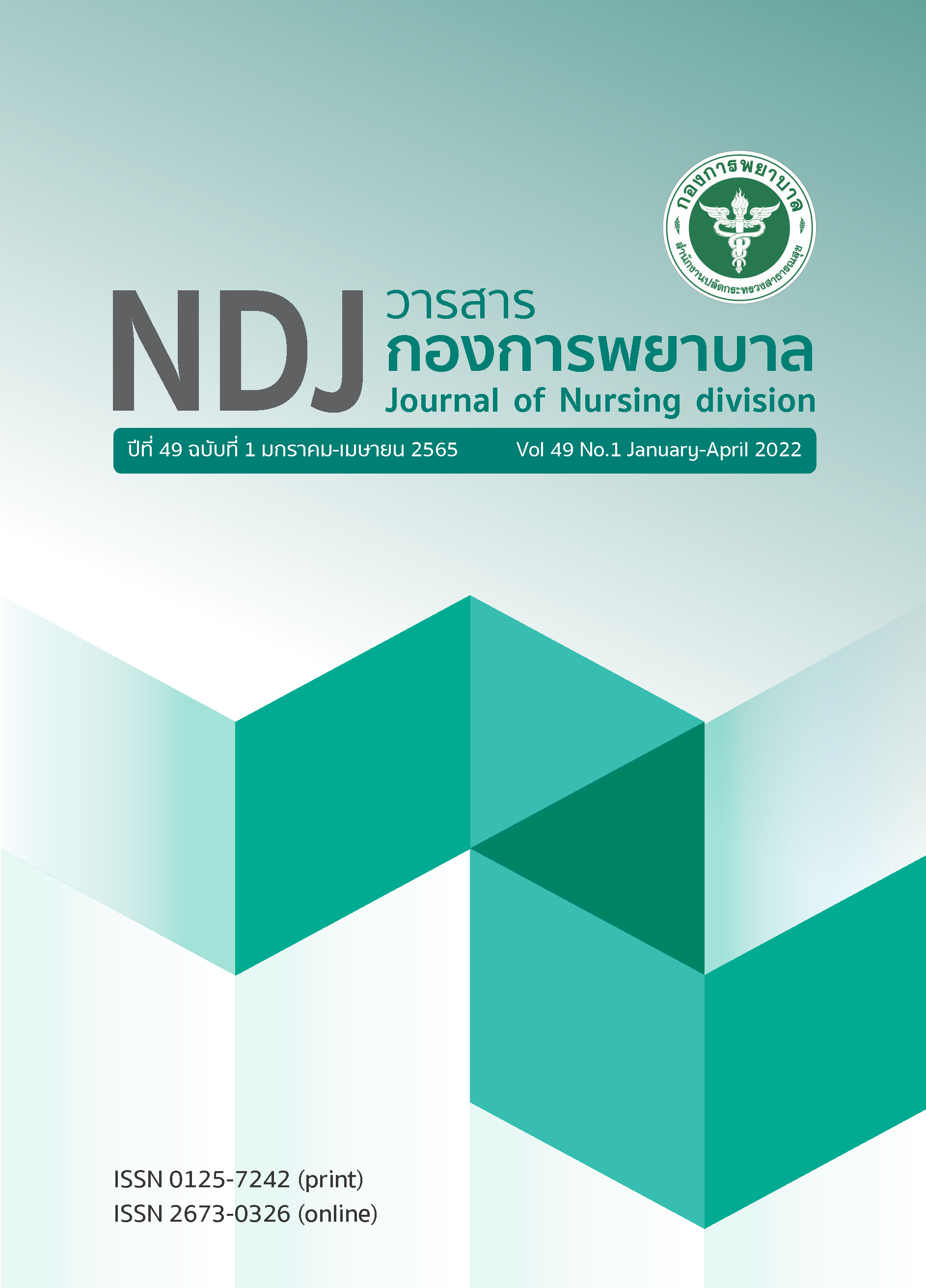สร้างคุณค่าเพื่อการคงอยู่ของพยาบาล Gen X และ Gen Y
Main Article Content
บทคัดย่อ
พยาบาลวิชาชีพเป็นทุนมนุษย์ด้านสุขภาพของระบบบริการสุขภาพ เป็นทรัพยากรบุคคลที่มีคุณค่าทางวิชาชีพ ผู้ที่สามารถปฏิบัติการพยาบาลได้ ต้องมีการสั่งสมความเชี่ยวชาญ ทักษะ ความรู้ในงานการพยาบาล ซึ่งได้จากการฝึกอบรมและประสบการณ์ปฏิบัติงานการพยาบาลผู้ป่วย ในระยะ 20 ปีที่ผ่านมา จำนวนผู้ป่วยเพิ่มมากขึ้น ระบบบริการสุขภาพมีการเติบโตอย่างรวดเร็ว ส่งผลให้อัตรากำลังพยาบาลวิชาชีพไม่เพียงพอในการดูแลผู้ป่วย แม้ว่ากระทรวงสาธารณสุขมีการเร่งผลิตบุคลากรพยาบาล แต่ไม่สามารถบรรจุเป็นข้าราชการได้ทั้งหมด อีกทั้งภาระงานที่มากขึ้น ทำให้เกิดการลาออก ซึ่งเป็นการสูญเสียทั้งความเชี่ยวชาญและต้นทุนการพัฒนาบุคลากร ดังนั้นการสร้างคุณค่าเพื่อการธำรงรักษาให้บุคลากรพยาบาลคงอยู่ในระบบบริการสุขภาพจนเกษียณอายุราชการ ช่วยให้ประชาชนได้รับการดูแลที่มีคุณภาพมาตรฐาน และเพิ่มประสิทธิผลของการบริการสุขภาพ ซึ่งพยาบาลกลุ่ม generation X และกลุ่ม generation Y เป็นบุคลากรส่วนใหญ่ที่ปฏิบัติงานในปัจจุบัน และมีความต้องการที่แตกต่างกัน บทความวิชาการนี้จึงเป็นการสังเคราะห์วรรณกรรมและนำเสนอประเด็นที่เกี่ยวข้องกับการคงอยู่ของบุคลากรพยาบาลกลุ่ม generation X และกลุ่ม generation Y ในประเด็น (1) แนวคิดการคงอยู่ในองค์กร (2) ปัจจัยที่มีผลต่อการคงอยู่ในองค์กรของบุคลากรพยาบาล และ (3) แนวทางการสร้างคุณค่าบุคลากรพยาบาลเพื่อการคงอยู่ในองค์กร อันที่จะสามารถเป็นประโยชน์ต่อการนำไปประยุกต์ใช้ในการบริหารจัดการทุนมนุษย์ด้านการพยาบาลขององค์กรพยาบาลในส่วนของการธำรงรักษาบุคลากรให้คงอยู่ในองค์กรหรือระบบบริการสุขภาพภาครัฐต่อไป
Article Details

อนุญาตภายใต้เงื่อนไข Creative Commons Attribution-NonCommercial-NoDerivatives 4.0 International License.
เอกสารอ้างอิง
Chinnawat Chueasraku, Vichai Premmanisakul, Tara Singkasa. Human capital vs. human resources management: The applicable approach for Thai organizations. Journal of HRintelligence. 2019; 14(1): 88-104. Thai.
Baron A, Armstrong M. Human capital management: Achieving added value through people. London: Kogan, 2007.
Surasak Chamaram. Human capital management (HCM) meaning importance evolution and trends. RMUTP Research Journal Humanities and Social Sciences. 2017; 2(1): 56-67. Thai.
Ministry of Public Health. 20-year National Strategic Plan (Public Health) [Internet]. 2016 [cited 2021 November 20]; Available from:
https://waa.inter.nstda.or.th/stks/pub/2017/20171117-MinistryofPublicHealth.pdf. Thai.
Thailand Nursing and Midwifery Council. Professional Nursing and Midwifery Act B.E.2528 (1985), Revision of the Act B.E.2540 (1997) [Internet]. 1997 [cited 2021 November 20]; Available from: https://www.tnmc.or.th/news/122 Thai
Thailand Development Research Institute. TDRI Report, No. 152, May [Internet]. 2019 [cited 2021 November 20]; Available from: https://tdri.or.th/wp-content/uploads/2019/08/wb152.pdf. Thai.
Information and Communication Technology Center, National Statistical Office. Ratio of medical staff to population 2020 [Internet]. 2020 [cited 2021 November 20]; Available from: http://ittdashboard.nso.go.th/preview.php?id_project=60. Thai.
Krisada Sawaengdee. Crisis of nursing shortage in health service facilities under Office of Permanent Secretary, Ministry of Public Health: Policy recommendations. Journal of Health Science. 2017; 26(2): 456-468. Thai.
Nursing Division, Office of the Permanent Secretary, Ministry of Public Health. National Nursing Service Strategy 2017-2021 [Internet]. 2018 [cited 2021 November 20]; Available from: https://www.don.go.th/?page_id=917. Thai.
Marufu TC, Collins A, Vargas L, Gillespie L, Almghairbi D. Factors influencing retention among hospital nurses: systematic review. British Journal of Nursing. 2021; 30(5): 302-308.
Thanyanan Boonyoo. The structural influence of factors affecting the retention of professional nurses in hospitals and medical centers, Ministry of Public Health. Journal of Management Science Review. 2021; 23(1): 67-79. Thai.
Tassana Boonthong, Somchit Hanucharurnkul. Strategies for development and retention of nurse within nursing profession. Thai Journal of Nursing and Midwifery Practice. 2016; 3(2): 15-24. Thai.
Ghunyanutt Sathagathonthun, Anucha Kornpuang. The Causal relationship model of job retention for nurses in government hospitals. Journal of Nursing and Health Sciences. 2018; 12(1S): 58-74. Thai.
Das BL, Baruah M. Employee retention: A review of literature. Journal of business and management. 2013; 14(2): 8-16.
Juntima Rerkluenrit, Rukchanok Kochakri. A study of the relationship between selected personal factors, professional practice environment, and job retention of registered nurses in Thailand. Journal of The Royal Thai Army Nurses. 2018; 19(3): 195-203. Thai.
Maleewan Lertsakornsiri, Malinee Pandee, Wilawan Phengpanich. Strengthening job satisfaction and retention in the organization of new graduate registered nurses. Journal of Phrapokklao Nursing College. 2020; 31(2): 201-212. Thai.
House R, Rousseau DM, Thomas-Hunt M. The Meso paradigm: A framework for the integration of micro and macro organizational behavior In Cumming LL, Staw BM (Eds.) Research in organizational behavior (pp.77-114). Greenwich: JAI Press, 1995.
Mathis R, Jackson J. Human resource management (11th eds.). Ohio: South Western, 2010.
Taunton RL, Krampitz SD, Woods CQ. Manager impact on retention of hospital staff part 2. Journal of Nursing Administration. 1989; 19(4): 15-19.
Bell M, Sheridan A. How organisational commitment influences nurses' intention to stay in nursing throughout their career. International Journal of Nursing Studies Advances. 2020; 2:100007.
Herzberg F, Mausner B, Snyderman BB. The motivation to work (2nd eds.). New York: John Wiley and Sons, 1959.
Reisenwitz TH, Lyer R. Differences in generation X and generation Y: Implications for the organization and marketers. The Marketing Management Journal. 2009; 19(2): 91-103.
Jaruda Kumpira, Laddawan Daengthern, Jirarat Ruetrakul. Factors influencing the job retention of generation X and generation Y professional nurses in Phichit Hospital. 2018; 12(3): 167-177. Thai.
Tanait Padumanonda, Suchonnee Metiyothin, Banpot Wirunraj. Structural equation model of intention to stay among professional nurses inregional hospital operated by Ministry of Public Health Office of the Permanent Secretary. Journal of Graduate Studies Valaya Alongkorn Rajabhat University. 2017; 11(3): 81-96. Thai.
Kittiya Chutchawanchanchanakij, Jidapa Thirasirikul, Porntep Siriwanarangsun. Management factors affecting the retention of scarce professional nurses in organization. Journal of Social Academic. 2019; 12(1): 188-194. Thai.


